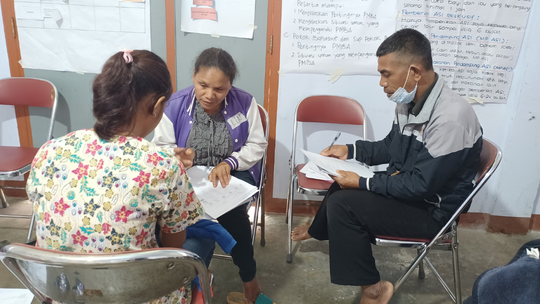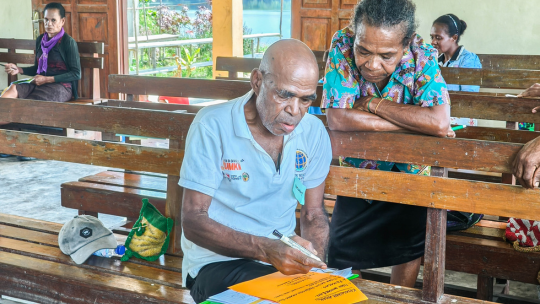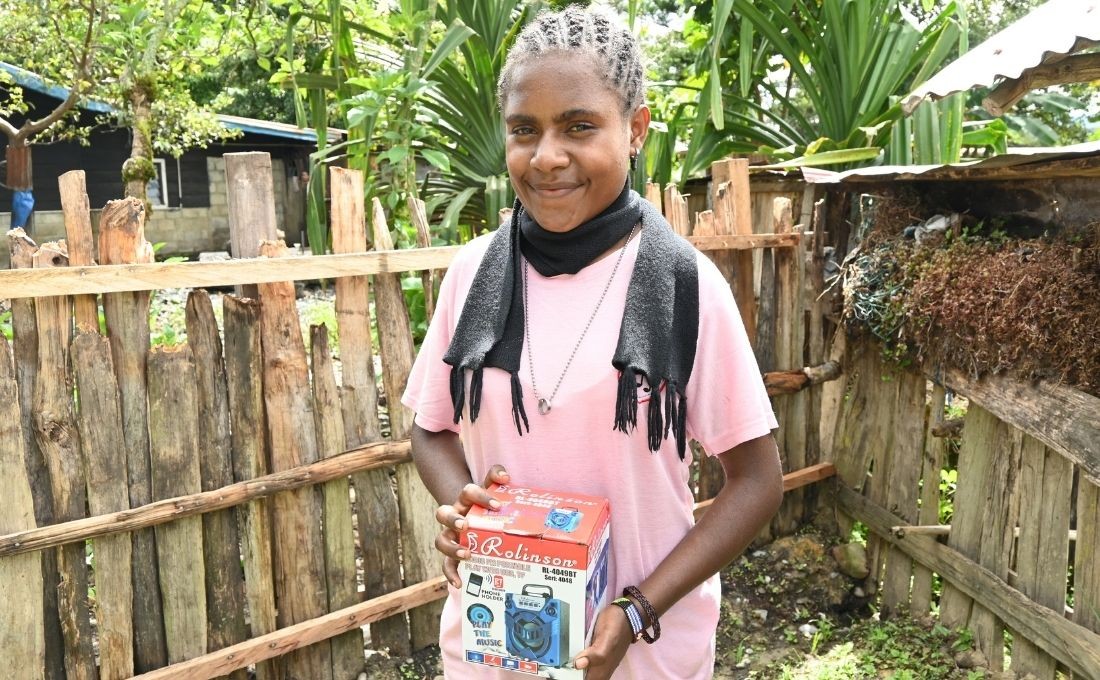Career Opportunities in Romania
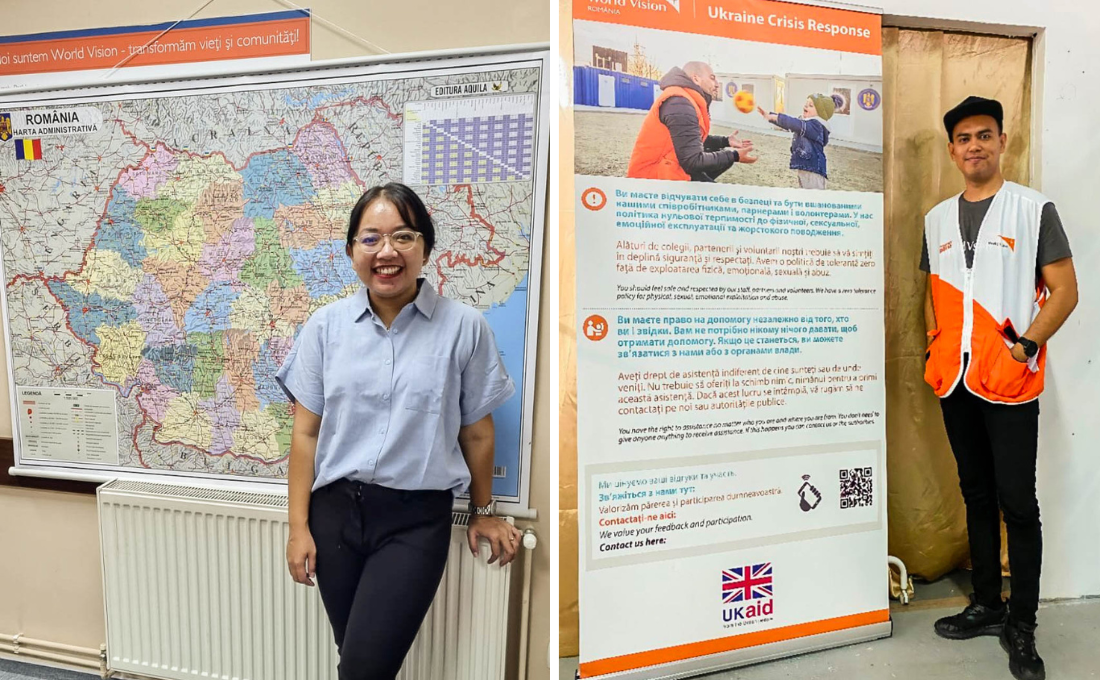
Like Franky Banfatin and Nelly Sembiring, being a humanitarian worker can give you the opportunity to work internationally. Franky and Nelly, as they are affectionately known, are two staff members of Wahana Visi Indonesia who worked in the World Vision Romania office in 2022. They were on special assignment to be involved in the crisis disaster response in Ukraine. Let's get to know Franky and Nelly better, and their story of working with colleagues from other countries.
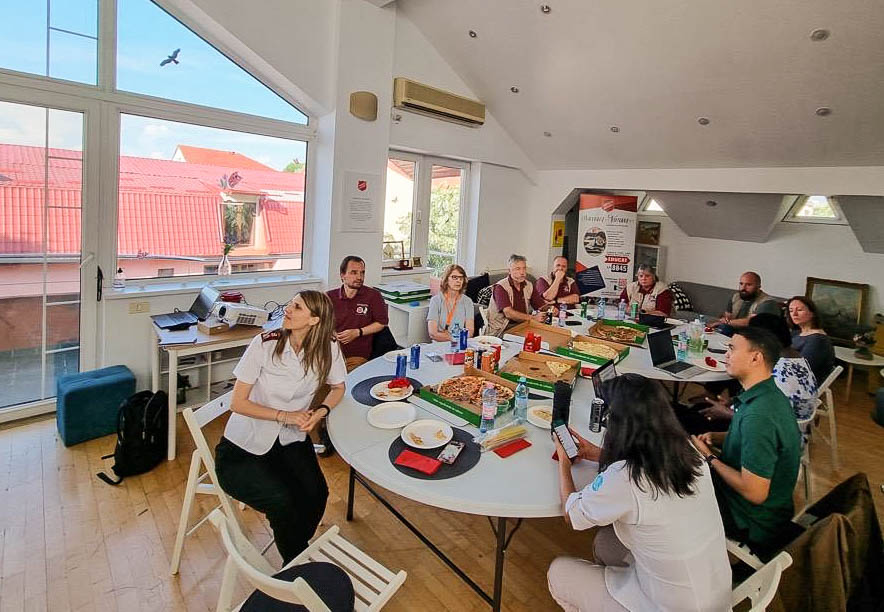
Franky (right, green shirt) in a meeting with colleagues form World Vision.
Question (Q): What position do you currently work in?
Nelly (N): Child Protection Specialist
Franky (F) : Head of Social Impact and Sustainability (SIS) Department.
Q : What does the Child Protection Specialist do? What does the Head of SIS Department do?
N : The child protection specialist focuses on assisting in the planning and evaluation of child protection programs that WVI conducts with the government and communities, including children. These programs aim to reduce the number of physical and sexual violence against Indonesian children. I provide recommendations and technical guidance so that WVI can conduct activities that increase community capacity to prevent and respond to physical and sexual violence against children. In addition, WVI can also support the government to provide child protection services for children who have experienced physical and sexual violence so that they can recover.
F : SIS is a unit that focuses on partnering with corporations or foundations (both local and international) to accelerate the achievement of the SDGs (Sustainable Development Goals). I lead a team that establishes these partnerships. Later, the partnership will become social and humanitarian development programs, both in the form of social contribution events through access and management of CSR (Corporate Social Responsibility) and ESG (Environmental, Social and Good Governance) funding. The point is to establish partnerships so that there are programs that benefit children and society.
Q : How long have you been working at WVI?
N : It's been 10 years
F : Almost 8 years, since 2015
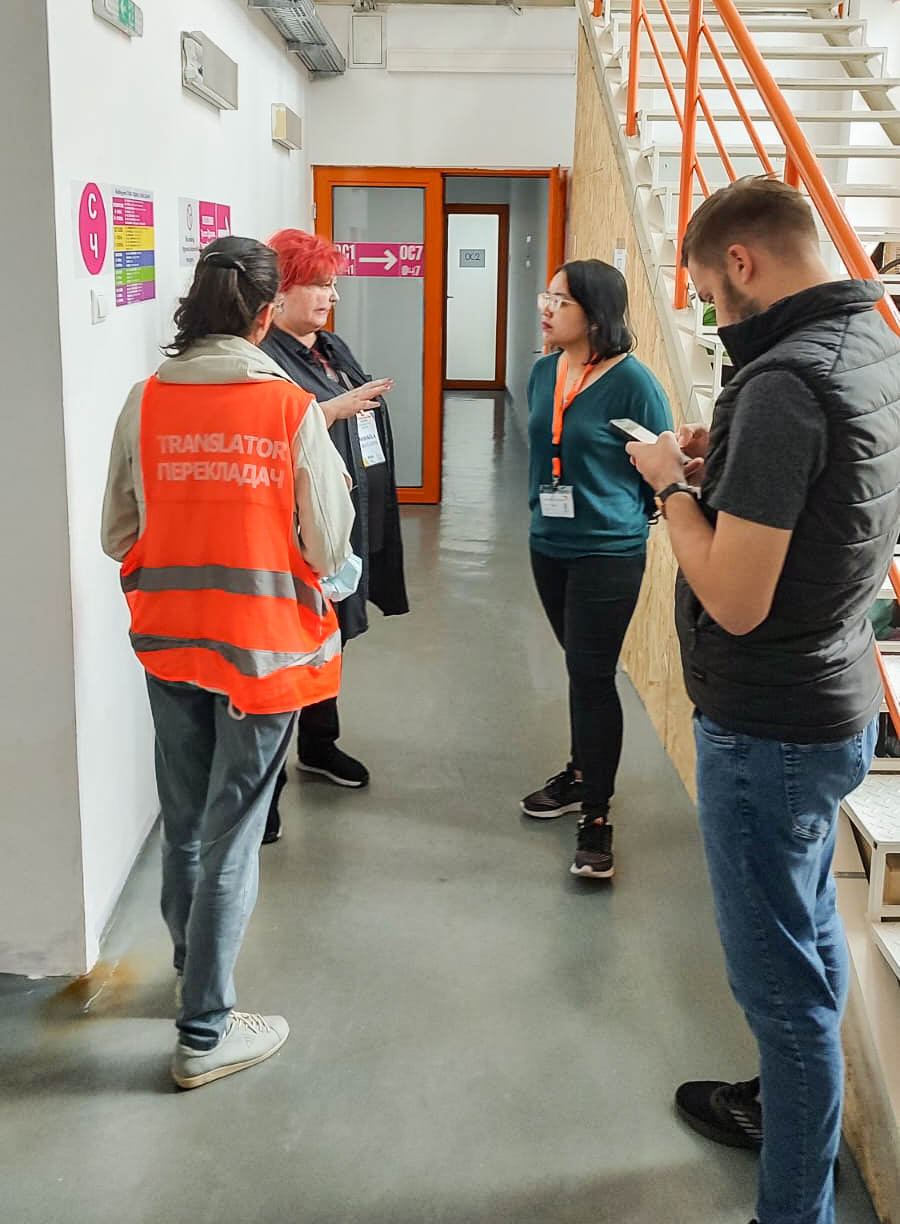
Nelly (middle-right, green shirt) in a discussion with colleagues from World Vision.
Q : What are your reasons for wanting to work in the humanitarian world and doing the work you are doing now?
N : Because I want to contribute, to bring better change for children. For me, being a humanitarian worker is a real contribution, I can see the changes that happen too.
F : Maybe it's because of "the calling", and the vision in the organization is also the same as my personal vision. So it's quite in line. In addition, when I was a child, I was also supported a lot by organizations like WVI so that I could get to where I am now. Maybe you could also say this is a form of "giving back to the society".
Q : You work for Wahana Visi Indonesia, but you were able to go to World Vision Romania. How did you get there?
N : As a member of the office's disaster team at the national level, in 2020 I attended a training on child protection in humanitarian action organized by World Vision International. After the training, participants must be ready for deployment. This means that whenever it is necessary to be assigned to a specific disaster response, I must be ready. In July 2022, the team from World Vision Global sent an email to the national office asking me to be deployed to Romania as a child protection specialist for Ukraine Crisis Response.
F : Since 2016, I also joined a special unit called NDMT or National Disaster Management Team. But I wanted to have more advanced experience, so I also tried to become a Regional Asia Pacific Disaster Management Team (RDMT), where one of my goals was to be involved in international deployments. Praise God, after passing the Top 3 Programming in Emergency for the Asia Pacific area in 2021, I was trusted to go directly to Romania and Moldova to support the Ukraine Crisis Response.
Q : When you were in Romania, what role did you play and what did you do, how long were you there? What exciting experiences did you have?
N : Ukraine Crisis Response is World Vision's global response to the crisis in Ukraine. The response was carried out in 3 countries namely, Ukraine, Romania and Moldova. I served as a child protection specialist in Romania. I ensured the implementation of child protection programs on the ground was in line with standards. Specifically, World Vision's Mental Health and Psychosocial Support (MHPSS) program for displaced children and families in Romania. I support the field team by providing training materials and delivering capacity building trainings on MHPSS.
F : I am in the Humanitarian Programming division as a Program Officer. I was in Romania for about four months, working virtually for the first month and based in Bucharest, Romania for the next three months. The fun part was that I got to work with several Program Officers from other countries, such as from the UK, Taiwan, South Korea, Guatemala, Georgia, Poland, and several others. During my time there, we had to create or design humanitarian programs in accordance with disaster response strategies and government strategies. I focused on programs related to Ukrainian refugees in Romania. Not only creating programs, I also looked for local partners to provide program funding assistance, especially for the implementation of Cash Voucher Programming and Mental Health Psychosocial Support activities.
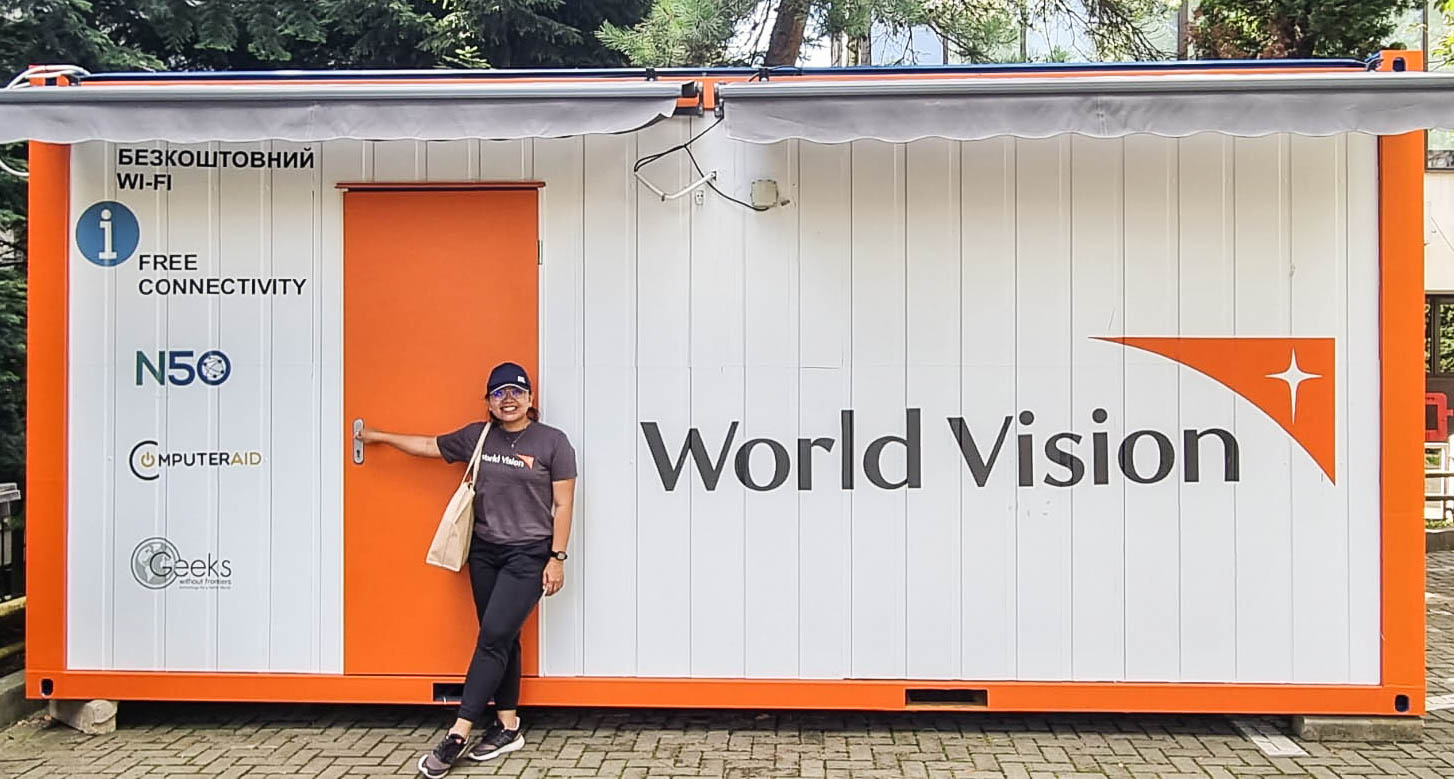
Nelly visited WV Romania's facilities.
Q : What values and skills do you think are needed to be able to work in the humanitarian world, and also for your respective positions today?
N : In the humanitarian world, we must have the value of respecting human dignity. In the relationship between aid providers and aid recipients, we need to reflect this value in our work. Even though we are humanitarian workers who bring aid to people or children in need, it does not mean that we can be arbitrary or ignore their dignity. Our concrete form of respecting their dignity, for example, in providing assistance we start by assessing their needs according to age group and gender. So that the assistance we provide is right on target according to their needs. This is also regulated in humanitarian standards. So that humanitarian workers can do their work without adding harm to the community. In addition, we need to have the skills to collaborate with many parties. Because in the humanitarian world we need collaboration or cooperation with many institutions, including the government, to meet the needs of the community. In child protection programs, humanitarian workers must have several technical skills such as insight into psychosocial support, advocacy, case management, and more.
F : If you have the heart, you can beat the hard. That's the first key non-technical skill needed if you want to work in the humanitarian field. But as Programming in Emergency, technically what is needed besides the ability to design programs, write proposals, negotiate, and diplomacy with donors, is the ability to adapt quickly to humanitarian situations. We also need to know how to strategically communicate program ideas and funding.
Q : Well, it must be useful information for readers who are interested in the world of social work, especially those interested in the world of emergency response. Closing question, what is your biggest dream for Indonesian children?
N : Indonesian children have an environment - family, school, community - that protects and supports their growth and development.
F : My dream for Indonesian children is that they dare to dream and participate, and are able to realize their own dreams. The fact is, there are still many children, especially in the most vulnerable areas, who are ashamed to dream.
Hopefully, the stories that Franky and Nelly share can be an inspiration to all of us. These stories can be a good illustration of what the tasks of a social worker or humanitarian worker entail. In addition, these staff stories can also give us an idea of the activities of Wahana Visi Indonesia, as well as its international partner World Vision in other countries.
Contributor : Gracia Thomas (Marketing Communication Lead)
Editor : Mariana Kurniawati (Communication Executive)

